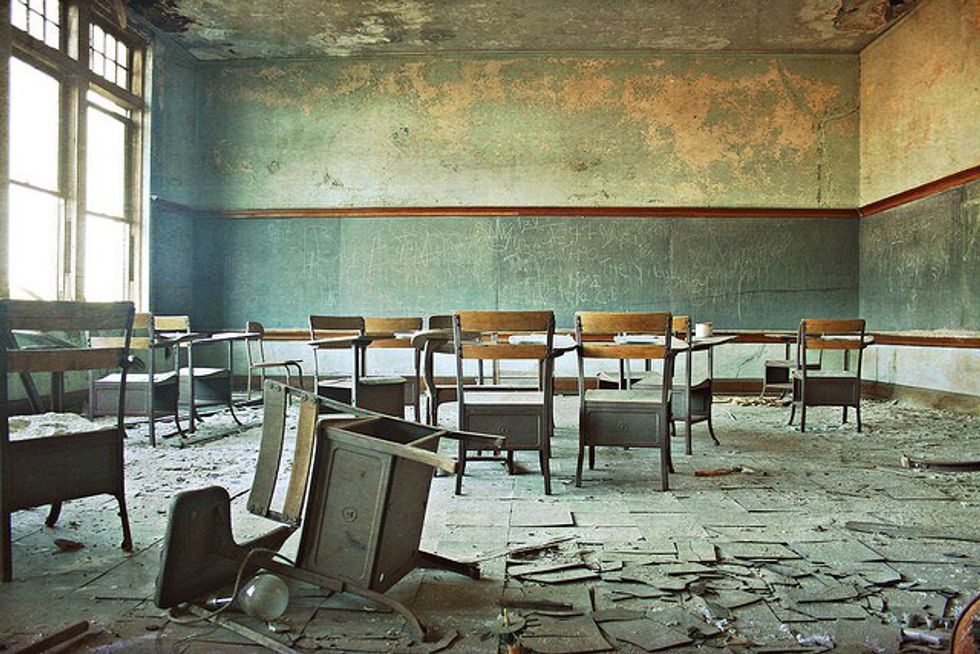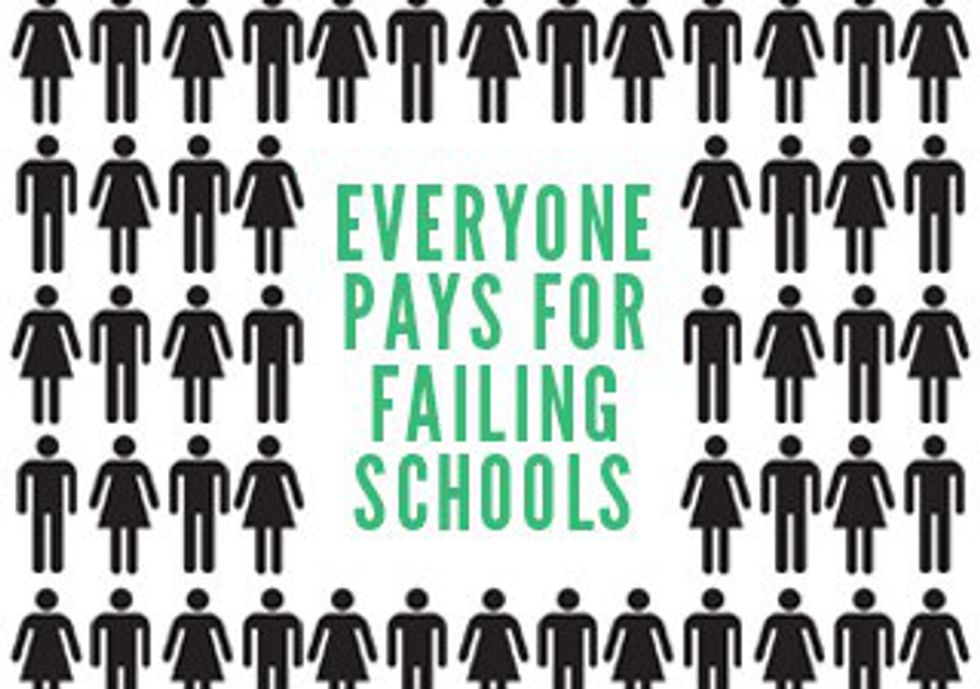The American Dream is a concept we are all familiar with and that most aspire toward: a stable career, a healthy family, a nice house with a car or two in the driveway. While it seems basic enough, many are never able to reach this ideal. That's because although education is the basis for all other successes, our education system is severely neglected and unequally provided. Those who can't access quality education do not often lead quality lives.
Our K-12 system is funded primarily through local governments -- 83 cents on each dollar put toward public education comes from state and local levels. The rest is split between private funders and federal grants. So where do states get their money? Usually it's through sales tax and income tax coming from both personal and corporate sources. This seems to be an equal system. The local districts, however, fund differently: property taxes.
Property taxes as the basis for educational funding causes huge discrepancies between how much each school receives. The more your property or your neighbor's property is worth, the more funding your local schools receive. Ultimately, families with heavier wallets get stronger education: higher teacher to student ratios, newer textbooks, newer technology, and better kept infrastructure. Neighborhoods that are poorer get a poor education.
It's not uncommon for the gap to be as large as $20,000 spent per student in separate but close-by districts in the same state. There's deep segregation between the wealthy and the impoverished here. Some may argue that funding doesn't make or break a good education, but how could it not when money pays for qualified teachers and updated curriculum materials? There's an achievement gap that follows the gap in funding as well according to Sean F. Reardon from Stanford University: "The relationship between a family's position in the income distribution and their child's academic achievement has grown substantially stronger during the last half century." Students in poorer schools learn less and do worse.
I know from experience that unfair funding policies can damage opportunities. I graduated from Harry S Truman, a high school in the Taylor School District, in 2012. Taylor is not the nicest city and continues to fall downhill (as I can observe by the increasingly common abandoned buildings and lack of new businesses). Truman was a Title I school during my time there. We struggled to gain funding: teachers would give extra credit for showing up to count day and names were written in our textbooks signed with dates going back to the late 80's early 90's. Despite this I always felt like I was doing well; I excelled compared to my peers and I just knew I'd come out on top.
In my freshmen year of college, I felt the exact opposite. Of course as freshman all of the students bonded over sharing high school experiences -- socially and academically. It wasn't long before I became embarrassed and stopped joining in on these conversations. I kept thinking, "Oh, we were never offered any of those courses," or " Oh, we never got to do that." I realized my education was not the same quality as my peers: "Oh."
I kept my head down after that.
I soon realized that I had a lot of catching up to do in my classes as well. Holy shit was I behind. I got As in high school that quickly translated into Cs in college. Professors were basing lessons off of previous knowledge that I clearly did not have. It was tough. The majority of friends I graduated with quickly dropped out of school (or never bothered to begin at all). If we had a better quality K-12 education, I would know more college graduates and successful adults today. But I don't. Simply because Taylor homes cost $72 per square foot compared to the rest of Metro Detroit at $114. It seems so abstract, but these numbers shape our entire lives.
The situation in Detroit Public Schools is so severe that citizens tried to sue the government for not providing their right to an education. DPS made national headlines earlier this year for their crumbling buildings, lack of staff, over-crowding and horrible access to basic resources like heat and books. More recently, legal action was taken to try and acquire government money to repair the situation. Governor Snyder responded with, "Literacy is not a right," and dismissed the case. Public education is completely unimportant to those who can afford private schooling.
While I won't continue the debate approving or dismissing private or school of choice education, I will say that no matter the amount of those attending non-public schools (which is declining anyway), we cannot neglect our public education system. There will never be a time when everyone can afford private school and we can't leave American children to become illiterate or fall behind in innovative areas like math and science. These are your children. My children. They are the future of our country as a whole and without a solid education to stand on we run the risk of falling out as a world power, as a nation of beautifully skilled and intelligent people. Education opens the door to success and we can't deny ourselves the opportunity to succeed. At the least, we need to keep the American Dream alive and attainable.














































